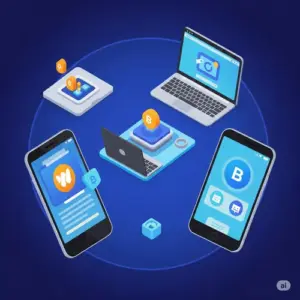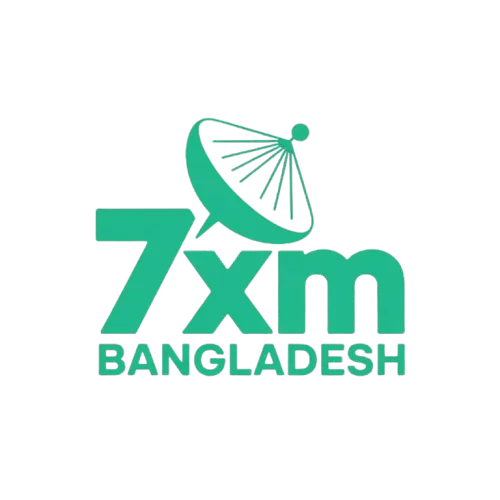Ready to build the next generation of games? For Bangladeshi developers, explore Web3 game development: NFTs, P2E, secure smart contracts, and market insights.

Building the Next Generation: A Guide for Developers Entering Web3 Gaming
Hey there, fellow creators and app owners in Bangladesh! Troy speaking from 7xmbangladesh.com.
The gaming world is always evolving, right? We’ve seen mobile gaming explode, and now there’s a new frontier everyone’s talking about: Web3 Gaming. It’s more than just a buzzword; it’s a whole new way to build games that gives power back to players and opens up exciting possibilities for developers like us.
If you’re an app owner or game developer in Bangladesh thinking about stepping into the Web3 space, you’re in the right place. This guide will walk you through the key things you need to know, from integrating blockchain to building a strong community and understanding local rules.
Why Web3 Gaming is Different (and Why You Should Care)
Before we dive into the ‘how,’ let’s quickly understand the ‘why.’ Traditional games are often “centralized,” meaning one company controls everything – your in-game items, your progress, even your account.
Web3 games, however, are built on blockchain technology. Think of blockchain as a super secure, transparent digital ledger. This allows for:
- True Ownership: Players genuinely own their in-game items (like unique characters, rare weapons, or virtual land) as NFTs (Non-Fungible Tokens). They can trade, sell, or even use these assets outside the game.
- Decentralization: Power can be shared. Sometimes, players even get a say in how the game evolves through DAOs (Decentralized Autonomous Organizations).
- New Economic Models: Players can participate in the game’s economy in new ways, potentially earning value through their gameplay.
For you, the app owner, this means building a game that offers more to players, potentially creating stronger communities, and exploring new monetization avenues that go beyond traditional in-app purchases. If you’re curious to learn more about my vision for this platform, feel free to visit our About Us page.
1. Blockchain Integration: Choosing Your Foundation
The very first step in building a Web3 game is picking the right blockchain. Think of it like choosing the engine for your car. Each blockchain has its own strengths, weaknesses, and a specific “cost” for transactions (called gas fees).
Key Considerations for Bangladesh:
- Speed & Cost: Bangladesh’s internet infrastructure is growing, but transaction speed and low gas fees are crucial for a smooth player experience. Blockchains with faster and cheaper transactions (like Polygon, Avalanche, or Solana) might be more suitable than, say, Ethereum’s mainnet for everyday in-game actions.
- Scalability: Can the blockchain handle thousands or even millions of players and transactions without slowing down?
- Developer Tools & Community: Is it easy for your team to build on? Are there good resources and a supportive community of other developers?
Tip: Don’t just pick the trendiest blockchain. Research which one best fits your game’s specific needs, your budget, and your target audience in Bangladesh.
2. Tokenomics Design: Building a Sustainable In-Game Economy (No Gambling!)
This is perhaps the most critical part, especially if you want to create a successful game without falling into the trap of encouraging gambling. Tokenomics is essentially the science of your game’s economy – how its digital currencies (tokens) and NFTs are created, distributed, used, and valued.
Your Goal: Create a balanced, engaging, and sustainable economy where players feel rewarded for their time and skill, not just for “luck.”
How to Avoid Gambling Elements:
- Focus on Skill & Effort: Rewards should come from gameplay skill, strategic decisions, time commitment, or creative contributions, not from random chance (like highly speculative loot boxes that resemble gambling).
- Utility Over Speculation: Ensure your in-game NFTs and tokens have clear, tangible utility within the game. For example, a character NFT has unique abilities, a weapon NFT improves combat, or a land NFT allows for building. This makes their value derived from their use, not just from being a rare collectible for speculative trading.
- Transparent Mechanisms: Be very clear about how tokens are earned and spent. Avoid opaque systems that could be perceived as manipulative.
- Sustainable Emission & Sink Mechanisms:
- Emission: How new tokens or NFTs are introduced into the game (e.g., as quest rewards, battle pass unlocks, crafting outputs).
- Sink: How tokens or NFTs are removed from circulation (e.g., used for upgrades, burned for new items, paid as fees). A good balance prevents inflation and maintains value.
- Real Value for Real Play: Your game should be fun and engaging first. Any economic benefit should be a bonus for playing a good game, not the sole reason for playing. We strongly advocate for Responsible Gaming practices, and building a sustainable economy is key to that.
Example: Instead of a “lucky draw” for a rare item, players might need to gather specific resources through quests, craft, and then upgrade an item over time, demonstrating effort and progress.
3. Smart Contract Development: The Rules of Your Game on Blockchain
Smart contracts are like self-executing digital agreements stored on the blockchain. They automatically enforce the rules of your game without human intervention. This is what makes Web3 games transparent and trustless.
What Smart Contracts Handle:
- NFT Creation & Management: Defining the properties of your in-game NFTs, how they are minted (created), and how ownership is transferred.
- Token Management: How your game’s cryptocurrency is issued, transferred, and potentially staked.
- Game Logic: Specific game rules, like how rewards are distributed after a battle, how crafting works, or how players interact with virtual land.
- Marketplace Operations: The mechanics of your in-game marketplace where players buy, sell, and trade NFTs.
Key Point: Developing smart contracts requires specialized coding skills (often in languages like Solidity for Ethereum-compatible blockchains). Security is paramount – a single bug can lead to major vulnerabilities. Auditing your smart contracts by external security experts is absolutely essential before launch. Think of it as a quality check to protect your game and your players.
4. Community Building: Your Players are Your Partners
In Web3 gaming, the community isn’t just an audience; they’re often an integral part of the game’s ecosystem. Many Web3 games thrive on strong, engaged communities.
Strategies for App Owners:
- Early Engagement: Start building your community even before your game launches. Use platforms like Discord, Telegram, and Twitter. Share your vision, concept art, and development updates.
- Transparency & Communication: Be open and honest about your development progress, challenges, and future plans. Listen to feedback.
- Community-Driven Features: Consider implementing DAOs where players can vote on game features, economic changes, or even future development directions. This gives them a real stake in the game’s success.
- Localize Your Efforts: Engage with the Bangladeshi gaming community directly. Host online events, Q&A sessions in Bengali, and create specific channels for local players to connect.
5. Legal & Regulatory Considerations (Especially for Bangladesh)
This is a critical area that many new developers overlook. The Web3 space is still new, and regulations are evolving rapidly around the world, including in Bangladesh.
Important Points for Bangladeshi Developers:
- Cryptocurrency Regulations: Bangladesh’s stance on cryptocurrencies can be complex. While direct trading might face restrictions, the use of blockchain technology for in-game assets might be viewed differently. It is crucial to consult with legal professionals in Bangladesh who specialize in blockchain and technology law. Do not assume.
- NFTs and Digital Assets: Understand how NFTs are classified legally in Bangladesh – are they treated as digital goods, securities, or something else? This impacts how you can market and sell them.
- Anti-Money Laundering (AML) / Know Your Customer (KYC): Depending on the scale and economic activity within your game, you might need to consider AML/KYC requirements for larger transactions to prevent illicit activities.
- Consumer Protection: Ensure your game’s terms of service are clear, fair, and comply with consumer protection laws in Bangladesh. For more details on what we expect from partners, please review our Terms and Conditionsand Privacy Policy.
- No Gambling Promotion: Reiterate your commitment to not promoting gambling in your game design and marketing. Your game should clearly differentiate itself from activities regulated as gambling. Always remember our Disclaimer regarding the informational nature of our content.
My Advice to You, the App Owner: Don’t guess here. Seek professional legal advice specific to Bangladesh’s laws regarding blockchain, digital assets, and gaming. This proactive step can save you significant trouble down the line.
The Road Ahead
Developing a Web3 game is a challenging but incredibly rewarding journey. It requires a blend of traditional game development skills with new expertise in blockchain, smart contracts, and tokenomics.
By focusing on creating genuine value for players, designing sustainable in-game economies that prioritize skill and fun over speculation, and understanding the unique technical and legal landscape, you can build the next generation of games that truly empower players.
Are you an app owner or developer in Bangladesh thinking about your first Web3 game? What challenges are you facing? Share your thoughts in the comments below!
If you’re interested in partnering with us or reaching a wider audience of Bangladeshi gamers and developers, consider our Advertise With Us options. And to know more about the person behind these insights, feel free to check out About Troy Dela Cruz.

Want to know who’s writing those game reviews? That’s me, Troy Dela Cruz! For the past three years, I’ve been working as an iGaming writer and reviewer. My main goal is to help you understand the world of online gaming better. I look at games, betting sites, and all the new things happening in iGaming. I try to give you honest opinions so you can choose what’s best for you.
When I’m not busy with iGaming, I’m often playing MOBA games. These are my favorite because they need good plans and teamwork. It’s always exciting to play with friends and try to win the game!
Come join me as I keep exploring the big world of online games, both as a writer and as a player!
